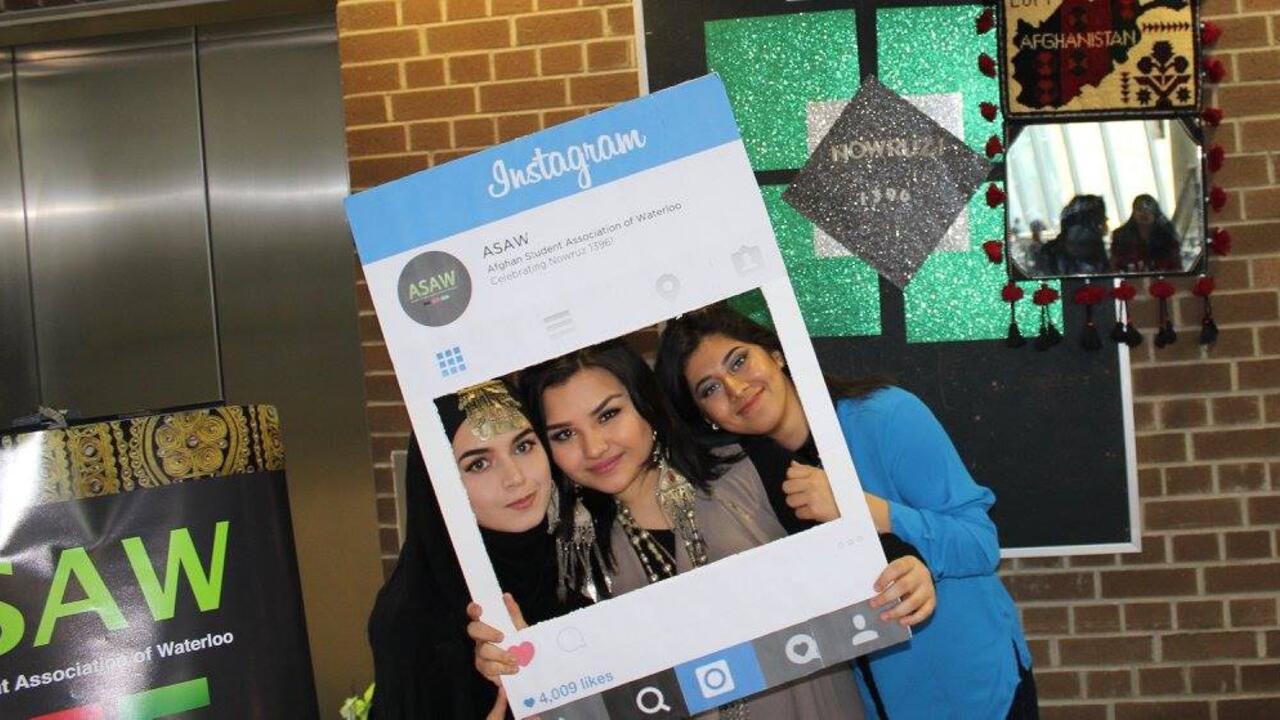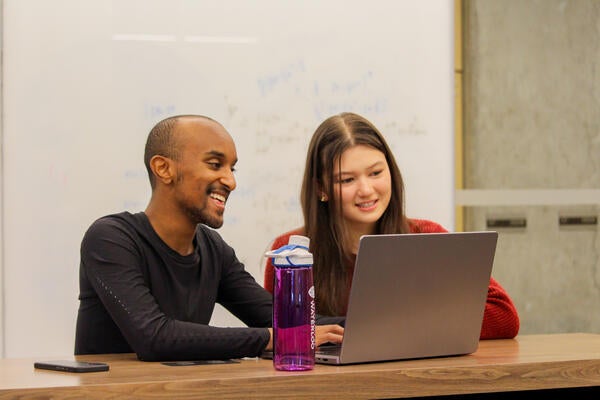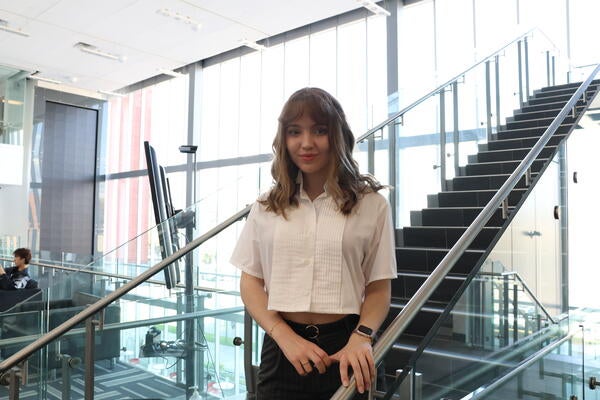
Graduating with a degree, a patent and a purpose
Sheha Akbari is passionate about making a difference to Afghan women and youth

Sheha Akbari is passionate about making a difference to Afghan women and youth
By Carol Truemner Faculty of EngineeringTo say Sheha Akbari made the most of her five years as a Waterloo Engineering student could just be an understatement.
She graduates June 19 in a remote convocation ceremony with a BASc in management engineering as an inventor with an Apple patent in the works, a volunteer with experience as a refugee interpreter and translator, and a passionate leader of several initiatives to help improve the lives of disadvantaged women and youth living in Afghanistan.
Two of Akbari’s engineering co-op terms were spent at Apple in Cupertino, California where she quickly made a good impression with her innovative ideas and leadership skills.
Along with tackling “usual intern-type work” during her first stint with the company, she helped develop logo prototypes for Apple’s iPad cover.
Towards the end of her first term, she entered and won second place in a contest designed for interns to come up with new Apple products or features.
The winning Inline Replies feature she created for iMessage lets users reply to a specific message in conversations with one person or groups.
Sheha Akbari, far right, led projects and developed technology on co-op terms at Apple in California.
Although the company changed the feature’s name and tweaked its interface, Akbari was responsible for introducing the core technology, part of Apple’s iOS 14 release.
“I designed and sketched it, I wrote up the one-pager for it and delivered the competition pitch with one of my roommates,” she says.
She approached Apple about securing a patent for her work and eventually received approval to have it put in her name.
Impressed with her first co-op term accomplishments, Akbari’s second Apple manager asked her to lead a team developing an iPhone MagSafe wallet accessory after the employee supervising the project suddenly left the company.
While challenging, Akbari’s engineering project manager role took on a whole new level of complexity when the pandemic forced her to return home to Canada in March 2020.
“I was set to travel to China to oversee the build but then COVID struck,” she says. “I still had the opportunity to oversee it but did so remotely. It was surreal to have the entire factory line reporting to me.”
Born in Canada to Afghan refugees, Akbari was raised appreciating the importance of a post-secondary education.
After leaving Afghanistan at the age of 16, Akbari’s father settled in Toronto where he drove a taxi to support himself and later his wife and children as well. While accepted to attend Brock University in St. Catharines, he couldn’t financially afford to quit his job to become a student and fulfill his dream of completing a degree.
of completing a degree.
“My father encouraged my mother to go to college and she did. He would take care of my sister and me during the day while my mother was in school and he would drive his cab in the evenings,” she says. “He still has the acceptance letter from Brock and is very proud of it.”
Sheha Akbari spent a work term in Afghanistan.
Growing up hearing about the financial, emotional and other struggles her parents, especially her mother, had while in Afghanistan, Akbari has committed herself to launching initiatives to help support Afghan citizens, particularly women and youth.
While on a co-op term working in the country where most of her extended family still lives, Akbari employed women to make jewelry and embroidery and patchwork pieces for a social enterprise she launched called The Kabul Express.


Two of the Aghan women employed by The Kabul Express.
She sold the unique handmade goods and reinvested the profits into food packages and other sustainable items for the craftswomen.
The Kabul Express also ran an emergency clothing drive in response to a spike in Afghan child deaths from hypothermia and pneumonia, raised over $7,000 in monetary donations in three weeks using social media marketing, and distributed aid kits to refugee and IDP (internally displaced person) camps in the country.
 After returning to Canada, Akbari refined the vision for the Kabul Express and relaunched it as Silky Road, a venture for which she received a Norman Esch Enterprise Co-op Award in 2020.
After returning to Canada, Akbari refined the vision for the Kabul Express and relaunched it as Silky Road, a venture for which she received a Norman Esch Enterprise Co-op Award in 2020.
Along the way, she headed up the Afghan Students Association of Waterloo for two years and found time to volunteer for several international organizations as an interpreter and translator.
Sheha Akbari led the Afghan Students Association of Waterloo while in management engineering.
Akbari spent almost two years working with the Embassy of Afghanistan in Rome where she helped refugees facing language barriers by converting email and other communications from Pashto and Dari/Farsi to English.
In 2019, she co-founded the Sola Foundation, an organization focused on empowering Afghan youth.
“Its goal is to create sustainable peace, prosperity and abundance in Afghanistan by activating Afghan’s young people to lead social enterprises there,” says Akbari, the foundation’s director of innovation.
As the first woman in her extended family to graduate with an engineering degree, she is grateful for all the opportunities her Waterloo “world-class education” has provided and credits the “incredible support” she received from management engineering faculty members and others for her success.
“Getting an education from such an esteemed university makes me so happy,” she says. “I know my dad is living vicariously through me.”
* From left to right in banner photo: Sara Amiri, Sheha Akbari and Mozhgan Ahmadi

Read more
Redefining capstone learning by bringing students, faculty and community partners together to tackle real-world challenges

Read more
Waterloo student launches Colare through co-op and entrepreneurship programs to reimagine recruitment for engineers

Read more
Fourth-year Global Business and Digital Arts student leverages artificial intelligence to fight food inflation, saving families up to $5,000 each year
The University of Waterloo acknowledges that much of our work takes place on the traditional territory of the Neutral, Anishinaabeg, and Haudenosaunee peoples. Our main campus is situated on the Haldimand Tract, the land granted to the Six Nations that includes six miles on each side of the Grand River. Our active work toward reconciliation takes place across our campuses through research, learning, teaching, and community building, and is co-ordinated within the Office of Indigenous Relations.